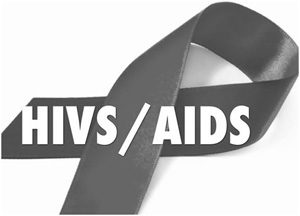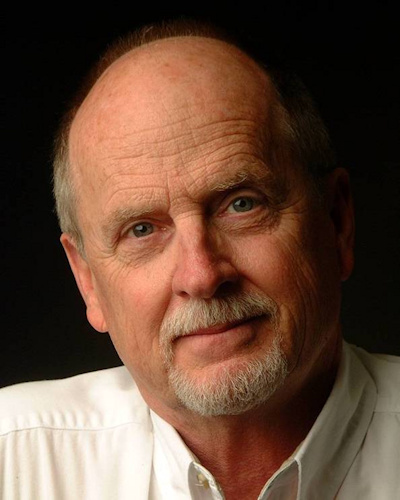<< LAST Contents NEXT >>
RESIST EXTREMIST’S WAR ON HIV/AIDS SERVICES AND RESEARCH

FROM AIDS UNITED, DECEMBER 14, 2018:
Trump Administration Cuts Funding for HIV Cure Research
Due to Stem Cell Research Opposition
Last week, the Trump administration enacted yet another cut to HIV/AIDS funding, this time targeting research: the National Institutes of Health (NIH), the Washington Post reported, would no longer financially support a research lab in California working to move us closer to an HIV cure or vaccine. Anti-choice proponents, who are enjoying more influence than in recent years because of allies in Congress and the White House, sought to end this and other NIH contracts because of their concerns about the use of fetal tissue, collected from elective abortions, in the research.
The lab at the University of California San Francisco (UCSF) has produced prominent research in the history of the HIV epidemic: as the Post writes, “Almost every drug for treating or preventing HIV infection has been tested at the UCSF laboratory and an affiliate.” The researchers do so by using fetal tissue of a thymus gland – which produces T cells that protect against HIV replicating in the body – to grow the same gland inside mice to test various chemical compounds that later become HIV prevention or management drugs.
Anti-choice advocates have successfully encouraged federal agency heads and lawmakers to reconsider the well established research practice of using fetal tissue; the Department of Health and Human Services (HHS) announced in September that it would review all such contracts, and the UCSF lab is not the first affected by these policy shifts. A smaller contract with a nonprofit called Advanced Bioscience Resources was ended earlier this year due to their work with fetal tissue. While HHS contends that no final decisions have been made writ large about the use of fetal tissue in federally funded research, the abrupt ending of these contracts – particularly the multimillion dollar one with the UCSF lab – worries health and science advocates, despite HHS Assistant Secretary for Health Brett Giroir’s assertion that Trump’s is a “pro-life, pro-science administration.”
AIDS United stands with our clinical colleagues against ideologically driven research agendas and with the larger sexual & reproductive health community against the demonization of necessary medical procedures and research. We urge the Administration to restore the vital funding and evidence-based research practices. Check back to the Policy Update regularly for the latest on HIV policy, funding, and research.
OUT HEALTH AND WELLNESS
NBC News
March 12, 2019, 2:38 PM PDT
Trump’s budget adds domestic HIV funding while slashing global outlays
“With infectious disease, pulling back resources historically has led to increase in infectious disease,” she said. “The virus doesn’t operate in the way of seeing those borders or boundaries.”
“This administration’s AIDS and health policies are at war with each other, internally. What one hand gives, the other takes away.”PETER STALEY
By Tim Fitzsimons
The Trump administration Monday unveiled its 2020 budget proposal, which contains a $291 million request to fund the president’s “Ending the HIV Epidemic” plan.The new funds are for what the budget calls an “ambitious, yet necessary effort” and would largely go to the Centers for Disease Control and Prevention, the Ryan White HIV/AIDS program and the Indian Health Service.
“For the first time in modern history, America has the ability to end the epidemic, with the availability of biomedical interventions such as antiretroviral therapy and pre-exposure prophylaxis (PrEP),” the budget states.
Related
NBC OUT
Trump plan to stop HIV epidemic targets high-infection areas
The budget says that the requested funding is the “first step” toward ending the HIV epidemic in America.
The president’s plan marks the first time the federal government has called for funding biomedical interventions as a prevention strategy. After decades of promoting condoms, which the CDC’s own data show are effective at stopping about 80 percent of HIV infections,the government is throwing its weight behind PrEP, which is more effective at more than 92 percent.
Since the drug Truvada was approved to be used as PrEP in 2012, HIV diagnoses have dropped in cities where access to the drug is widespread, such as New York City, San Francisco and Washington, D.C.
Of the $291 million total requested for the Department of Health and Human Services, $120 million is earmarked for “additional care and treatment for people living with HIV through the Ryan White HIV/AIDS program,” as well as PrEP outreach to patients at community health centers that get Ryan White funding. The Indian Health Service will get $25 million, and the National Institutes of Health’s Centers for AIDS Research, which study best practices for HIV programs, receives $6 million, according to the AIDS Institute.
Almost half the budgeted amount, $140 million, is earmarked for the CDC “to reduce new HIV infections by working closely with state and local health departments on intensive testing and referral to care efforts.” These measures would be concentrated in the areas of high HIV transmission that the president’s plan targets for intensive prevention efforts.
The $140 million allotted for the CDC is an 18 percent increase over what it received last year, according to Jen Kates, vice president of global health and HIV policy at the Kaiser Family Foundation. “That’s a pretty significant jump,” she added.
“In the context of HIV-specific programs, these are significant resources, assuming they do get approved by Congress,” Kates added. “This is a start, and this level of money is important for these programs and could catalyze some change if it is deployed in ways that follows public health principles and reaches communities that need it most.”
Not included in the $291 million request is an additional $58 million earmarked for the CDC “to address the infectious disease consequences of the opioid epidemic,” which has driven up HIV and hepatitis C rates in certain areas across the country.
A number of HIV/AIDS activists praised the domestic funding increases, but others decried the reduction in funding to fight the global HIV pandemic, as well as proposed cuts to Medicare and Medicaid.
“While the Trump budget includes several budget cuts that we cannot support, ending HIV is something we can all support,” Carl Schmid, deputy executive director of the AIDS Institute, said. Schmid called for Congress to appropriate the requested HIV/AIDS funding despite the other cuts: “This opportunity is too important to squander.”
Related
NBC OUT
Trump’s HIV plan met with both cautious optimism, flat-out skepticism
Peter Staley, a longtime HIV/AIDS activist and founding member of the Treatment Action Group, said, “Based on the program they’ve outlined, narrowly targeting only 48 counties and states, the funding level sounds about right.”
But Staley predicted that proposed cuts to government health care programs will work against the Ending the HIV Epidemic program.
“Without Medicaid expansion, they will never hit the five- and 10-year targets,” he explained. “This administration’s AIDS and health policies are at war with each other, internally. What one hand gives, the other takes away.”
Kates of the Kaiser Family Foundation agreed with some of Staley’s concerns. She said proposed cuts to the president’s Emergency Plan for AIDS Relief and The Global Fund, which fund treatment and prevention in poor countries, could work against the most well-intentioned domestic efforts to end the HIV/AIDS epidemic.
“With infectious disease, pulling back resources historically has led to increase in infectious disease,” she said. “The virus doesn’t operate in the way of seeing those borders or boundaries.”
<< LAST Contents NEXT >>

